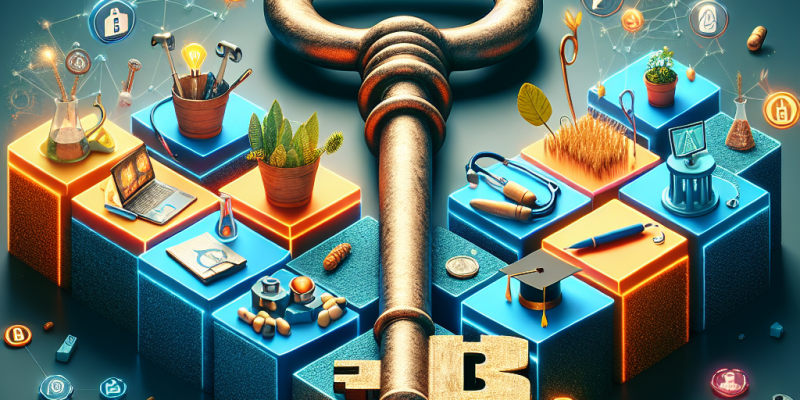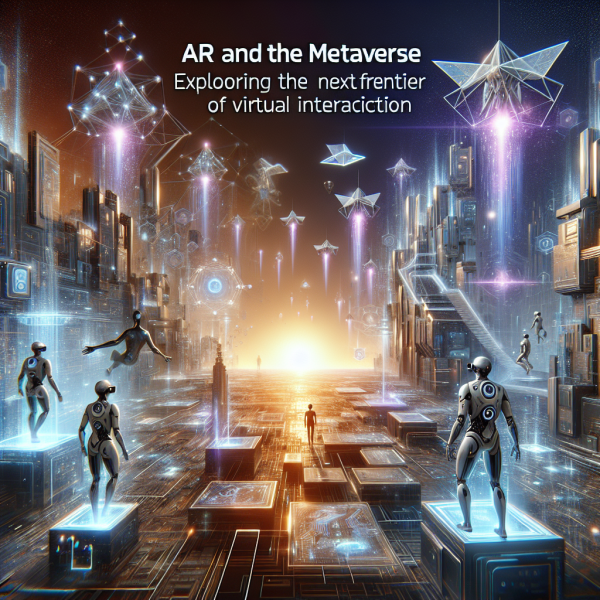Unlocking Potential: How Blockchain is Revolutionizing Industries Beyond Cryptocurrency

In the past decade, the term "blockchain" has predominantly been associated with cryptocurrencies like Bitcoin and Ethereum. However, as the technology matures, its capabilities are being recognized beyond digital currencies. Blockchain’s unique structure—comprising a decentralized ledger, transparency, immutability, and security—offers transformative potential across a myriad of industries. This article explores how blockchain is revolutionizing sectors such as supply chain management, healthcare, finance, and more, unlocking value and reshaping traditional business models.
1. Transforming Supply Chain Management
One of the most promising applications of blockchain technology is in supply chain management. The conventional supply chain relies heavily on intermediaries and often suffers from inefficiencies and lack of transparency. Blockchain addresses these challenges by creating a decentralized ledger that records every transaction in real-time.
For instance, Walmart has implemented blockchain to track the origins of its food products. By scanning QR codes on food items, consumers can trace their journey from farm to store, ensuring freshness and accountability. This level of transparency not only enhances consumer trust but also allows for quicker responses to food safety issues, minimizing the risk of contamination.
Moreover, companies like IBM and Maersk are collaborating on TradeLens, a blockchain-based platform that aims to streamline global trade by providing all parties within the supply chain access to a single, up-to-date record of transactions. Such innovations enable enhanced coordination and reduce delays, ultimately fostering more efficient global commerce.
2. Revolutionizing Healthcare
In the healthcare sector, blockchain technology is poised to revolutionize the way patient data is stored and shared. The current system often leads to fragmented and outdated records, which can compromise patient care and data security. With blockchain, medical records can be securely stored in a decentralized manner, giving patients control over who accesses their information.
Projects like MedRec, developed by MIT, are already working towards integrating blockchain into healthcare. MedRec allows patients to maintain a single version of their medical history accessible to authorized medical professionals. This interconnectedness ensures that doctors have the most up-to-date information to make informed decisions about patient care, ultimately improving outcomes.
Furthermore, blockchain can facilitate more effective management of drug supply chains, ensuring the authenticity of pharmaceuticals and combating counterfeiting—a persistent issue that endangers lives and strains healthcare systems.
3. Enhancing Financial Services
Financial services stand at the forefront of blockchain innovation beyond cryptocurrencies. Traditional banking systems are often characterized by outdated processes, high fees, and lengthy transaction times. Blockchain eliminates many of these inefficiencies by providing a decentralized platform for transactions.
For example, Ripple is improving international payments through its blockchain-based solutions that facilitate secure, fast, and cost-effective cross-border transactions. By removing the need for intermediaries, companies can save time and money while ensuring the transfer of value occurs in a secure environment.
Moreover, blockchain-based smart contracts enable automatic execution of agreements between parties once predetermined conditions are met. This innovation streamlines processes such as loan agreements, real estate transactions, and insurance claims, reducing the need for legal intermediaries and expediting the overall transaction timeline.
4. Reinventing Education and Credentialing
In the education sector, blockchain is being utilized to create secure and verifiable student credentials. Traditional-degree verification processes can be cumbersome and prone to fraud. Blockchain-based systems eliminate these inefficiencies by enabling universities to issue verifiable digital diplomas stored on a decentralized ledger.
Companies like CipherTrace are developing systems that allow employers to verify the credentials of potential hires quickly and reliably. This not only reduces administrative burdens but also enhances trust in the recruitment process. Additionally, decentralized education platforms are emerging, allowing students to take courses and earn credentials from various institutions while having a controllable and verifiable record of their achievements.
5. Empowering Real Estate Transactions
Real estate transactions often involve lengthy processes and high associated costs, primarily due to the need for intermediaries. Blockchain can simplify the real estate market by enabling direct peer-to-peer transactions through smart contracts.
Platforms like Propy use blockchain to facilitate transactions in which all documents are secured and verified on a decentralized ledger. This not only expedites the buying and selling process but also reduces the costs associated with real estate closings. By eliminating middlemen, parties can negotiate and conclude transactions more efficiently while maintaining transparency throughout the process.
Conclusion
While cryptocurrency was the initial impetus driving interest in blockchain technology, its potential to revolutionize various industries is undeniable. From supply chain management to healthcare, finance, and real estate, blockchain enhances transparency, efficiency, and security in ways previously thought unattainable.
As organizations continue to explore and implement blockchain solutions, we are witnessing the unlocking of previously uncharted potential across industries. The future holds great promise, as blockchain technologies foster innovation, drive operational efficiency, and ultimately reshape the global economy in ways we are only beginning to understand. Embracing this transformation may well be the key to thriving in a rapidly changing world.













